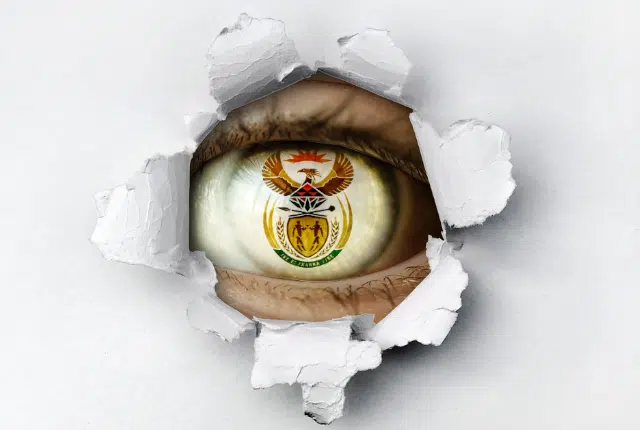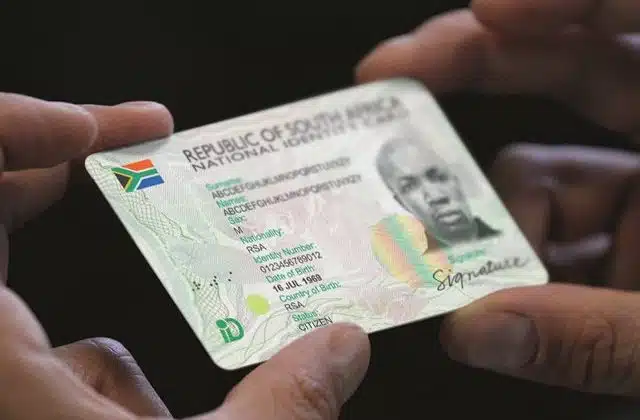
Intelligence report reveals ‘shocking reality’ around the interception of communication in South Africa
South Africa’s Interception Judge, Bess Nkabinde, states that the nation’s Workplace for Interception Centre (OIC) is being hamstrung by out-of-date innovation– and there is an unique absence of trust when handling state authorities that are putting in demands to obstruct interactions of personal people.
Nkabinde tabled her workplace’s intelligence report to the Joint Standing Committee on Intelligence (JSCI) on Friday (10 September), raising warnings on the state of South Africa’s intelligence operations.
It is the obligation of the Interception Judge to authorize or sign off numerous ask for wiretaps, bugging and interaction interceptions at the demand of South Africa’s different authorities.
This consists of the Financial Intelligence Centre (FIC), the State Security Agency (SSA), and the South African Police Service (SAPS).
These companies have actually made numerous applications to obstruct personal interactions in the last 3 years, practically all of which were authorized. Nevertheless, Judge Nkabinde’s report has actually highlighted numerous glaring concerns with the procedure, producing a minefield of constitutional issues.
According to Nkabinde, the concerns vary from administrative and technological, to concerns of trust.
She stated that her workplace merely can not monitor all the various demands, as brand-new case numbers are appointed to each application even if they associate with the exact same suspect flagged for monitoring. The case numbers likewise do not compare with the numbers held by each particular authority.
Her workplace likewise does not get all applications, as some demands– such as entry warrants– are dealt with by other police, causing more confusion.
The failure to fix up case numbers is likewise an outcome of dealing with procedures by hand, and not through electronic systems. The workplace’s systems are likewise undependable, and routine crashes lead to the loss of obstructed interactions.
This is if authorities have the ability to obstruct interactions efficiently– interception at the workplace is restricted to voice and SMS information, which indicates that 99% of a target’s interactions is lost, Nkabinde stated.
“( The workplace is not able) to obstruct other types of interaction like WhatsApp, consisting of WhatsApp voice calls, Skype, e-mails, Facebook and other social networks platforms,” she stated.
The most distressing issue, nevertheless, is that there is merely no other way to examine whether the applications for interception hold true or not— and high profile lawsuit in the previous 2 years have actually revealed that authorities are more than efficient in making case files to get authorization to spy on unassociated activities.
” The (untruthfulness) of many deponents to the affidavits sent in assistance of the interception are, as we have actually seen, a matter major issue. The Interception Judge is not able to confirm the truthfulness of the declarations made,” she stated.
Judge Nkabinde said state authorities lying to get interceptions authorized was a “stunning truth”, keeping in mind 2 cases highlighted in court procedures where state firms obstructed reporter interactions, where authorities had actually produced and misrepresented details to the Interception Judge.
In those cases, the SAPS informed the judge that the contact number came from believed ATM bombers.
In another case, authorities got consent to obstruct a person’s interactions after connecting them to foreign intelligence services through dripped e-mails. It was later on exposed that the examining authorities made the e-mails.
” Undisputed proof was prior to the court that in specific circumstances, the companies can get imaginary intelligence reports about a person. They would produce a report of that nature even where they have actually carried out security that did not yield the wanted report,” Nkibande stated.
RICA
South Africa’s spy issues are well recorded and were brought to the fore in the 2019 lawsuit challenging the constitutionality of the Regulation of Interception of Communications and Provision of Communication-Related Information (RICA) Act.
The obstacle to RICA’s constitutionality occurred when among the reporters of the investigative reporter group, amaBhungane, found that he was being spied on throughout South Africa’s notorious “Zuma Spy Tapes” legend.
The case was given the High Court in 2019, where it discovered RICA to be doing not have essential defenses for targets, particularly:
- The act stops working to effectively recommend the treatment for informing an individual whose info has actually been obstructed;
- The act stops working to sufficiently recommend the appropriate treatments to be followed when state authorities are taking a look at, copying, sharing and arranging through information gotten through interceptions;
- The act stops working to sufficiently resolve circumstances where the topic of security is either a practicing legal representative or a reporter.
According to Nkibande, the issues highlighted by her workplace reveal that there are still not sufficient safeguards in location to reduce invasions into the personal privacy of targeted people.
“The State Security Agency and the Financial Intelligence Centre did not send their reports. This is regrettable due to the fact that the companies’ reports are necessary as they offer a total image on the effectiveness– allegedly consisting of the insufficiencies– of the RICA procedure,” she stated.



